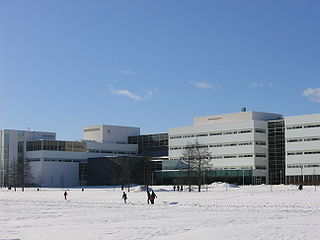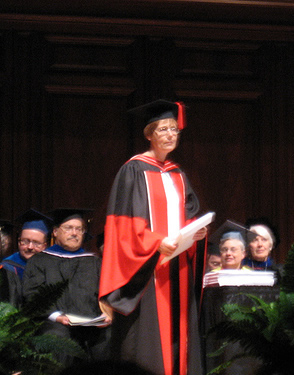Social software, also known as social apps or social platform includes communications and interactive tools that are often based on the Internet. Communication tools typically handle capturing, storing and presenting communication, usually written but increasingly including audio and video as well. Interactive tools handle mediated interactions between a pair or group of users. They focus on establishing and maintaining a connection among users, facilitating the mechanics of conversation and talk. Social software generally refers to software that makes collaborative behaviour, the organisation and moulding of communities, self-expression, social interaction and feedback possible for individuals. Another element of the existing definition of social software is that it allows for the structured mediation of opinion between people, in a centralized or self-regulating manner. The most improved area for social software is that Web 2.0 applications can all promote co-operation between people and the creation of online communities more than ever before. The opportunities offered by social software are instant connections and opportunities to learn.An additional defining feature of social software is that apart from interaction and collaboration, it aggregates the collective behaviour of its users, allowing not only crowds to learn from an individual but individuals to learn from the crowds as well. Hence, the interactions enabled by social software can be one-to-one, one-to-many, or many-to-many.

Collaboration is the process of two or more people, entities or organizations working together to complete a task or achieve a goal. Collaboration is similar to cooperation. Most collaboration requires leadership, although the form of leadership can be social within a decentralized and egalitarian group. Teams that work collaboratively often access greater resources, recognition and rewards when facing competition for finite resources.
Fle3 is a Web-based learning environment or virtual learning environment. More precisely Fle3 is server software for computer supported collaborative learning (CSCL).
Situated cognition is a theory that posits that knowing is inseparable from doing by arguing that all knowledge is situated in activity bound to social, cultural and physical contexts.
Learning sciences (LS) is an interdisciplinary field that works to further scientific, humanistic, and critical theoretical understanding of learning as well as to engage in the design and implementation of learning innovations, and the improvement of instructional methodologies. LS research traditionally focuses on cognitive-psychological, social-psychological, cultural-psychological and critical theoretical foundations of human learning, as well as practical design of learning environments. Major contributing fields include cognitive science, computer science, educational psychology, anthropology, and applied linguistics. Over the past decade, researchers have expanded their focus to include the design of curricula, informal learning environments, instructional methods, and policy innovations.

The Niagara College of Applied Arts and Technology is a public College of Applied Arts and Technology within the Niagara Region and the city of Toronto in Southern Ontario, Canada.
The Knowledge Building (KB) theory was created and developed by Carl Bereiter and Marlene Scardamalia for describing what a community of learners needs to accomplish in order to create knowledge. The theory addresses the need to educate people for the knowledge age society, in which knowledge and innovation are pervasive.

Carl Edward Bereiter is an American education researcher, professor emeritus at the Ontario Institute for Studies in Education, University of Toronto known for his research into knowledge building.
A learning community is a group of people who share common academic goals and attitudes and meet semi-regularly to collaborate on classwork. Such communities have become the template for a cohort-based, interdisciplinary approach to higher education. This may be based on an advanced kind of educational or 'pedagogical' design.
Computer-supported collaborative learning (CSCL) is a pedagogical approach wherein learning takes place via social interaction using a computer or through the Internet. This kind of learning is characterized by the sharing and construction of knowledge among participants using technology as their primary means of communication or as a common resource. CSCL can be implemented in online and classroom learning environments and can take place synchronously or asynchronously.
The knowledge divide is the gap between those who can find, create, manage, process, and disseminate information or knowledge, and those who are impaired in this process. According to a 2005 UNESCO World Report, the rise in the 21st century of a global information society has resulted in the emergence of knowledge as a valuable resource, increasingly determining who has access to power and profit. The rapid dissemination of information on a potentially global scale as a result of new information media and the globally uneven ability to assimilate knowledge and information has resulted in potentially expanding gaps in knowledge between individuals and nations. The digital divide is an extension of the knowledge divide, dividing people who have access to the internet and those who do not. The knowledge divide also represents the inequalities of knowledge among different identities, including but not limited to race, economic status, and gender.
Knowledge Forum is an educational software designed to help and support knowledge building communities. Previously, the product was called Computer Supported Intentional Learning Environments (CSILE). It was designed for a short period of time by York University and continued at the Ontario Institute for Studies in Education, University of Toronto, to support knowledge building pedagogies, practices and research designated in this area. In 1983, CSILE was prototyped in a university course and in 1986 it was used for the first time in an elementary school, as a full version. CSILE was considered the first networked system designed for collaborative learning. The main contributors were Marlene Scardamalia and Carl Bereiter.
A Knowledge Building Community (KBC) is a community in which the primary goal is knowledge creation rather than the construction of specific products or the completion of tasks. This notion is fundamental in Knowledge building theory. If knowledge is not realized for a community then we do not have knowledge building. Examples of KBCs are
Linda Marie Harasim, is a "leading teacher, scholar and speaker on the theories and practices of online education, contributing knowledge, technologies, and practices to the field of technology-enabled learning," is a pioneer leading theorist of online education. She is a professor emerita in the School of Communication at Simon Fraser University (SFU) in Vancouver, British Columbia, Canada. Her six books and hundreds of articles about Computer-supported collaborative learning have been acknowledged as seminal works in the field.
Expenditures by Canadian universities on scientific research and development accounted for about 40% of all spending on scientific research and development in Canada in 2006.

The Agora Center is a separate institute at the University of Jyväskylä in Central Finland. By its nature, the Agora Center is interdisciplinary and networked. Its purpose is to conduct, coordinate, and administrate top-level research and development that relates to the knowledge society and which places emphasis on the human perspective. The research and development is conducted in the form of fixed-period projects in cooperation with the University of Jyväskylä’s other faculties and separate institutes, businesses, the public sector and other relevant parties. The Agora Center also promotes researcher training through its various research projects. One of the core missions of the Agora Center is to effectively combine research and development with education. The project staff includes a high number of students and post-graduate students.

Progressive inquiry is a pedagogical model which aims at facilitating the same kind of productive knowledge practices of working with knowledge in education that characterize scientific research communities. It is developed by Professor Kai Hakkarainen and his colleagues in the University of Helsinki as a pedagogical and epistemological framework to support teachers and students in organizing their activities for facilitating expert-like working with knowledge.
The Institute for Research on Learning (IRL) in Palo Alto, California was co-founded by John Seely Brown, then chief research scientist at the Palo Alto Research Center, and James Greeno, Professor of Education at Stanford University, with the support of David Kearns, CEO of Xerox Corporation in 1986 through a grant from the Xerox Foundation. It operated from 1986 to 2000 as an independent cross-disciplinary think tank with a mission to study learning in all its forms and sites.
One of the most visible approaches to peer learning comes out of cognitive psychology, and is applied within a "mainstream" educational framework: "Peer learning is an educational practice in which students interact with other students to attain educational goals." Other authors including David Boud describe peer learning as a way of moving beyond independent to interdependent or mutual learning among peers. In this context, it can be compared to the practices that go by the name cooperative learning. However, other contemporary views on peer learning relax the constraints, and position "peer-to-peer learning" as a mode of "learning for everyone, by everyone, about almost anything." Whether it takes place in a formal or informal learning context, in small groups or online, peer learning manifests aspects of self-organization that are mostly absent from pedagogical models of teaching and learning.

Caroline Haythornthwaite is a professor emerita at Syracuse University School of Information Studies. She served as the School's director of the Library Science graduate program from July 2017 to June 2019. She previously served as Director and Professor at the Library, Archival and Information Studies, School of SLAIS, at The iSchool at The University of British Columbia (UBC). Her research areas explore the way interaction, via computer media, supports and affects work, learning, and social interaction, primarily from a social-network-analysis perspective. Previously, during 1996–2010, at the University of Illinois at Urbana-Champaign (UIUC), Haythornthwaite had worked as assistant professor, associate, or full professor in the Graduate School of Library and Information Science (GSLIS).
Scardamalia, M (2004). CSILE/Knowledge Forum. In education and Technology: An encyclopedia (pp. 183–192). Santa Barbara: ABC-CLIO





